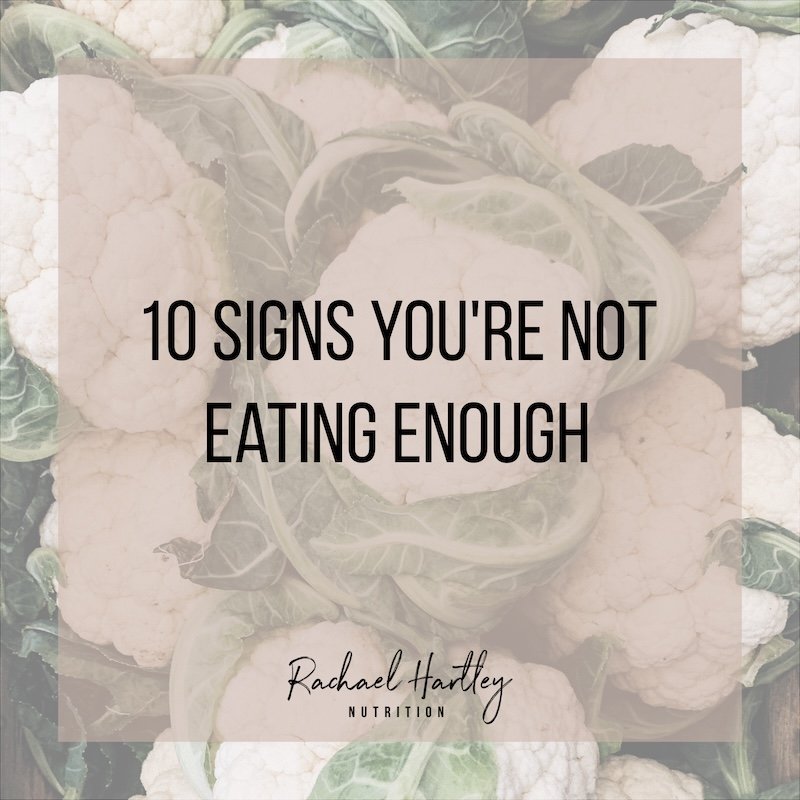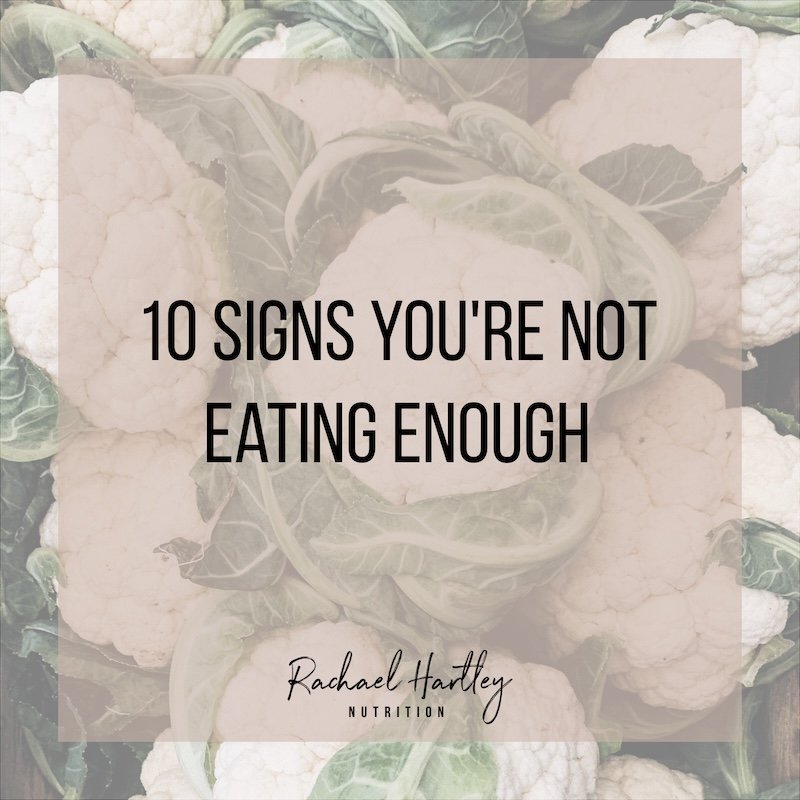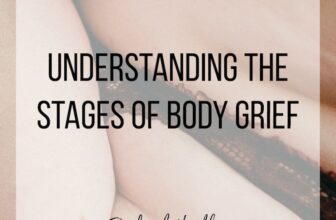
[ad_1]

Given the fatphobic society we live in, there’s a ton of fear about overeating. Sometimes people do struggle with consistently eating significantly more than their body needs, which by the way has much more to do with things like backlash to restriction, trauma, food access, stress, and depression than it does about willpower. Because there is so much fearmongering about overeating, the risk of undereating gets minimized.
The way “healthy eating” is often taught is teaching people to eat as little as possible without keeling over. Of course, that is not actually healthy eating. Hopefully you are well familiar with my hierarchy of nutrition needs, where adequacy is the base of the pyramid. Because “weight management” and “healthy eating” have become synonymous, what most people think of as healthy is actually restrictive. I often ask new clients what they think a healthy day of eating looks like, and 9 times out of 10 they describe a pretty skimpy day of eating. What they think of as an appropriate amount of food is in fact barely enough for a small child.
Because energy needs vary from person to person, undereating looks different for everyone. There’s not a caloric amount that defines undereating. If you’re wondering if you might not be eating enough, here are 9 symptoms of undereating.
9 Symptoms of Undereating
Anxiety or irritable mood.
If you’ve experienced hanger, then you know what I mean! We all know how short term hunger can impact mood, but long term undereating can have a more significant impact than just getting snappy towards your partner when dinner is late to the table. An underfueled brain will struggle with regulating mood. Studies have shown higher levels of tension, anger, fatigue and confusion in people with higher levels of hunger. If you’ve been struggling with mood or feeling higher levels of anxiety, it may be that your brain needs more fuel, especially if you are dieting or struggling with disordered eating. For more on the relationship between anxiety and hunger, read this blog post.
You’re thinking about food all the time.
One of the ways our brain signals that it’s time to eat is by directing thoughts to food. Makes sense, huh? You might notice this when the clock ticks closer to lunchtime, and suddenly you’re having a harder time concentrating as your brain wanders to what might be served in the lunch cafeteria. Totally normal stuff! However, if thoughts of food consume your day, it’s likely a symptom of undereating.
A classic example of this is the Minnesota Starvation Study, where a group of physically and mentally healthy men were placed on a semi-starvation diet (although I will note it was an amount of calories that most people wouldn’t think of as starvation – higher than a lot of weight loss diets!). The men experienced significant physical and mental side effects, one of which was an obsession with food. They traded recipes and collected cookbooks, talked about food, and lost interest in school, sex, and hobbies, all because they were thinking about food all the time. While it’s possible your “foodie” interest might just be an interest, it can also be a symptom of undereating.
Low energy.
Food is our fuel. We don’t photosynthesize or take gasoline or use batteries. We eat food, break it down into smaller nutrients, namely amino acids, fatty acids, and glucose, and use those nutrients to fuel all our bodily processes – walking, talking, thinking, breathing, etc. So it makes sense that one symptom of undereating is low energy levels. If you’re tired all the time or struggling with low energy despite getting enough sleep, lack of food might be the reason.
Feel dizzy or lightheaded frequently.
When your body is running short on fuel, you may experience a low blood sugar, which is defined as a blood glucose less than 70 mg/dL. Usually when blood sugar drops, your body will tap into backup supplies of glucose that are stored in the liver. If you are chronically undereating, those backup supplies may be low and put you more at risk of a low blood sugar and the resulting dizzy and lightheaded feeling.
Constipation, severe bloating, or alternating diarrhea and constipation.
When you eat less food, there’s less bulk to keep things moving through the digestive tract, which can result in constipation. Also, when you eat, it triggers the waves of muscle movement that push food through the digestive tract, a process called peristalsis. I explain it to my clients as the drunk guy at a football game who gets the wave going if you’d like a fun visual for that one! When you go long times without eating, it doesn’t trigger those waves of muscle movement, keeping food stuck in the intestines longer. When food is in your digestive tract for a longer period of time, there’s more fermentation and gas. For some people with constipation, things can get backed up to the point where eventually pressure rapidly pushes things through, resulting in diarrhea.
Loss of menstrual cycle.
There are many causes of amenorrhea, but the most common is chronic undereating. Your body tightly regulates energy balance, and when you’re not eating enough, it will make changes to conserve energy. It saves energy for more vital activities (like, ya know, breathing, heart beating, that kinda stuff), and slows down non-essential areas, like your period/preparing for a pregnancy your body isn’t nourished enough to carry.
Binge eating.
While binge eating can occur for reasons other than restriction, the most common cause is undereating. I explain it to my clients using a pendulum analogy. Not eating enough pulls the pendulum back towards restriction, then when one little slip happens, the pendulum swings back in the other direction towards binge eating. While a binge can feel rally scary and out of control, it’s important to remember that it’s simply your body’s way of protecting you against starvation.
[ad_2]






